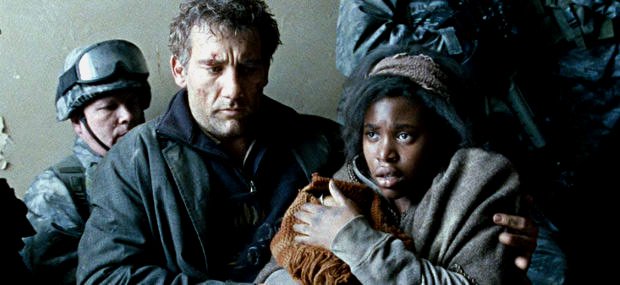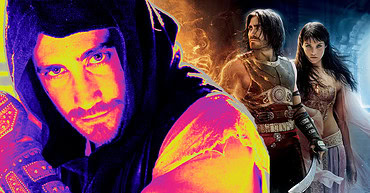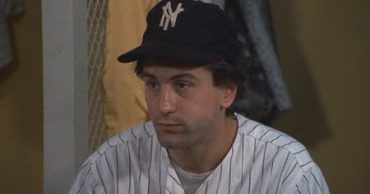
The American response to the coronavirus crisis leaves a lot to be desired. Whether its the fact that free tests cannot be guaranteed, the way people aren’t tested when flying in from crisis hotspots or the slow rollout of test kits themselves, the USA has lagged way behind its contemporaries from assuring any sense of calm.
The Commander in Chief, Donald Trump, seems nonplussed by the whole affair, regularly contradicting the findings of the CDC and downplaying the disease’s effects to potentially devastating effects. Information is critical in a time like this: if people are receiving the wrong news, the chances of the disease spreading are much higher, making this a new challenge for the presidency, perhaps one even the boisterous New Yorker himself can’t overcome.
This level of incompetence is nothing new, especially in the movies. In cinema, one can see many precedents for these kind of institutional failings. In many ways disaster films themselves are about the ways governments are not prepared for crises, and how their response (or failure or slowness to respond) helps to exacerbate these issues. From climate change to nuclear war to a sudden drop in fertility rates, we have collected five doomsday scenarios and how governmental incompetence have made them worse. Read on to see what we picked. Let us know your suggestions in the comment section below.
The Day After Tomorrow
In the space of a few years, Roland Emmerich’s The Day After Tomorrow has moved from being a work of speculative fiction to a truly deadly alarm. Along with the Al Gore documentary An Inconvenient Truth, it was a mid-00s call for climate reform that was laughed off, too little, too late. It starts with Dennis Quaid as a paleoclimatologist at a UN Summit warning governments that a crisis quickly looms. Naturally, and predictably, he is ignored by the US government as a fantasist. Many, many disasters follow.
As countries worldwide fail to safely deal with the effects of climate change, the situation has devolved into a crisis, with frequent flooding and fires seen worldwide. Nonetheless, unlike the governments in Roland Emmerich’s film, we still have the opportunity to turn things around before its too late.
Rampage
While on the face of it, Rampage, starring Dwayne Johnson as a scientist who can communicate with gorillas via sign-language, doesn’t seem that politically nuanced, it does have some interesting things to say about why it’s important to listen to experts.
For example, when a bioweapon is leaked, leading George the gorilla to suddenly grow in size, the immediate response is to try and neutralise the creature, despite the fact that The Rock’s character implores authorities to think smarter about the situation. He is ignored, leading to half of Chicago being razed to the ground.
With the advice of scientists regularly ignored in favour of political decisions made to look more decisive in the eyes of the media, Rampage’s message is particularly on point here. This incompetence is taken to the nth degree when the army’s response to a trio of huge animals, including a gorilla, wolf and crocodile, descending upon Chicago is to try and blow up the city, potentially killing scores of civilians in the process. Thankfully crisis is averted, but it makes you think that maybe the army should be more circumspect in such situations.
Dr. Strangelove or: How I Learned to Stop Worrying and Love the Bomb
Taking a dour source text, Red Alert, and turning it into comic gold, Stanley Kubrick’s Dr Strangelove takes a satirical look at how a nuclear apocalypse could stem directly from man’s inability to effectively communicate with one another. This comic approach is deeply inspired, with all-time great performances from Sterling Hayden as a paranoid SAC commander, George C. Scott playing against type as General Buck Turgidson and the incomparable Peter Sellers playing three wildly different roles.
The result is a satire, but with real concerns about the nature of Mutually Assured Destruction. Today with tensions between nuclear powers, especially between the West and Russia, still exacerbated by paranoia stemming from shadowy stereotypes, the message of Dr. Strangelove remains as relevant as ever. Additionally, with Donald Trump – who assassinated Iran’s General Soleimani on a whim – in the White House, anything is possible.
WALL-E
Made during Pixar’s best years, WALL-E starts on a world completely consumed by junk. Its sole inhabitant is a robot, who processes trash every single day despite there being no more human inhabitants. He was made to solve a problem that spiralled completely out of control, as big business – embodied by the The Buy n Large Corporation – took over the world at the cost of human life.
Where did all the people go? It turns out they were put on a ship in space. Once waiting to return to Earth, they have now become obese creatures of habit, constantly glued to their computer screens. Once we are up in space, WALL-E argues that our biggest enemy in the face of a disaster is distraction. More obsessed with screens and junk food, we can easily lose track of what is really important: nature, earth, human connection.
Children of Men
With every passing day, the lessons of Children of Men seem to grow in importance. Released to reasonable acclaim back in 2006, it now seems to speak directly to our moment. It portrays a world where fertility levels have plummeted to zero. Riven by fear and societal collapse, the UK is the world’s last safe haven, making it a refugee hotspot. But when a pregnant refugee finally emerges, it’s up to a disillusioned civil servant, played with pitch-perfect brilliance by Clive Owen, to get her to safety.
While the government couldn’t do much about the fact of women no longer giving birth, its response shows how cruel and awful people can be once they are in a state of panic. It imagines a terrifying human response to this crisis, with refugees put in concentration camps and often left to die. Nowadays, with the UK becoming more militantly anti-immigrant with the awful Priti Patel in charge of the Home Office and Boris Johnson leading the country into the blind-hole of Brexit, it feels far, far more likely than back in 2006.
 Follow Us
Follow Us





